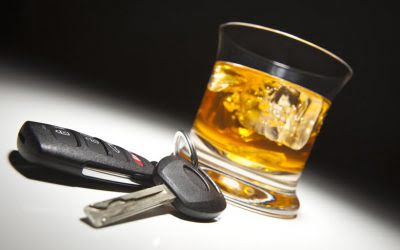
Intermittent explosive disorder Symptoms and causes
In other words, we’re likely to do things — including giving others an earful as soon as we feel irked — without thinking about the potential fallout. We might also misread social cues and lash out in response to perceived slights, non-existent threats, or frustrations. Jennifer Chesak is a freelance medical journalist, editor, and fact-checker with more than two decades of experience and bylines in several national publications. Instead, each participant randomly lost the game about half the time and was led to believe another person was delivering shocks to them during each loss. But effects to other neurotransmitters, including gamma-aminobutyric acid (GABA) and glutamine, may also be involved. Instead, they may zoom in on a particularly small thing and have an overly aggressive response (2).
The Path Is Clear – Take Your First Steps Today with Clear Steps Recovery

People who experience trauma or abuse in their lives are more likely to use alcohol as a coping mechanism. These conditions are easier to control or hide when the person is sober, but the loss of control related to alcohol consumption can make these conditions resurface. Because alcohol interferes with cognitive function, an angry alcoholic fails to use their logical thinking and problem-solving skills, which leads to disregard for consequences. Before we begin, it’s important to preface that the terms “raging alcoholic” or “angry drunk” aren’t a basis for a clinical diagnosis. You should never refer to someone using these expressions as they can be hurtful and stigmatizing.
What to Do if Someone You Love Becomes Angry When Drinking
This, in turn, puts pressure on the criminal justice system and contributes to overcrowding in prisons. Our addiction treatment facilities located in Scottsdale, Arizona, are committed to delivering comprehensive care and guiding individuals through every step of their sobriety journey. Reach out to our experienced substance abuse specialists today and start your path to recovery in a safe, comfortable, and luxurious environment.

Integrating Mental Health Care in Addiction Treatment

If you have a natural tendency to be angry, drinking alcohol may cause you to become aggressive. This environment offers safety, stability, Oxford House and structure for women rebuilding their lives. Here, clients receive emotional support, daily routines, and strong peer connections that make recovery feel less isolating.
- Don’t hesitate to consult a mental health professional regarding the most suitable therapy option for your needs.
- This article explores the causes behind alcohol-induced aggression, the warning signs to watch for, and how to find support and treatment for those impacted.
- In prior studies, this method has produced results that mirror findings based on structured interviews such as the SCID-II (Blais & Norman, 1997; Morey, 1988; Westen et al., 2003).
Sudden aggression after heavy drinking, property damage or fights, memory gaps, injuries, and drastic mood shifts reported by others. Blackouts occur when the brain cannot transfer short-term experiences into long-term memory. Remember, seeking support is crucial for managing Alcoholic Rage Syndrome and improving overall well-being. Many people experience strong mood swings and even aggression while detoxing. Alcohol and anger don’t have to be lifelong companions, as healing is possible with the right support. Once you have distanced yourself and been consistent in showing them that you will not put up with their bad behavior, you can support them from afar by telling them you will help them in their recovery.
If the addict chooses to seek recovery, knowing that they still have people who care about them and want to see them recover is crucial for their journey into sobriety. If they are violent towards you or their behavior is otherwise inadequate, you must contact the proper authorities. When someone becomes addicted to a substance, in this case, alcohol rehab is usually necessary because alcohol becomes something they physically need.
We Care About Your Privacy
Since they’re no longer drinking around the clock, you will have more chances to talk to them while they’re calm and not intoxicated. If the person is calm enough to accept advice, you may help them seek professional help. Be prepared to step drunk aggression back from the situation if these boundaries are crossed or if you think the situation may escalate. Also, family members may avoid social gatherings and visits to avoid the awkwardness of talking about their situation. Alcohol isn’t cheap, and the costs of fueling an addiction to it can quickly stack up and drain financial resources. This is especially difficult when the struggling person is the main source of income at home.
Providing care is a partnership. Learn the secrets of effective teamwork.
- The easier route is to make other people responsible for their moods and overall emotional well-being.
- When alcohol suppresses these regulatory functions, it can affect how you express your thoughts and emotions, including anger.
- This idea that it’s “everybody else” is also why alcoholics deny that they have an addiction.
- Although it may be easier said than done, dialing back your drinking can alleviate the problem.
A person’s socioeconomic status and demographic background can play a role in their vulnerability to alcoholic rage syndrome. Furthermore, certain risk factors can vary based on a person’s age, gender, sexual minority status, and exposure to trauma or other stressors. Our residents have found relief by addressing the root causes of alcoholic rage syndrome and seeking appropriate treatment. When under the influence of alcohol, individuals may find it harder to restrain their emotions, leading to anger outbursts. Additionally, alcohol can exaggerate underlying emotional issues or frustrations, bringing them to the surface in an uncontrolled way. Community-based programs play a vital role in preventing and managing alcoholic rage syndrome.
Remember to focus on self-care activities like working out, meditating, and spending time with loved ones. Seeking therapy can also help you manage your emotions and build effective coping mechanisms. It is crucial to establish boundaries and create a safety plan for emergencies. Some describe “BPD rage blackout” when intense anger overlaps with alcohol-induced memory https://fuelpumpexpress.com/drug-overdose-definition-treatment-prevention-and/ gaps. Borderline Personality Disorder (BPD) involves strong emotional swings and impulsivity; alcohol can amplify risk.
